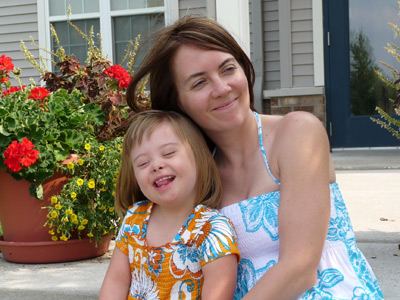
Early Childhood
Life with Preschoolers

Toddlers and preschoolers are such fun. Every day is a new adventure! Seeing the world through your young child’s eyes will change how you see the world.
Toddlers are very, very, busy. They are constantly on the go and forever getting into things. This is how they learn about the world around them. You, as the parent or caregiver, can help them explore by making sure they have safe places to play. This means "child-proofing" your home so that things that might harm your toddler are out of sight and out of reach. Make sure the other places your toddler plays are also safe. Always watch your child in stores, restaurants, playgrounds, and other places you go.
Children this age are learning to play with others. Look for parents and caregivers of young children who might like to get together for playtimes. These playtimes are great for your toddler to begin to learn social skills. They are also wonderful opportunities for you and other adults to share stories, suggestions, concerns, and to learn from each other.
Learning Everywhere, All the Time
Your young child is learning lots of things about you, your family, home, and the community. Whether he’s at home, in preschool or child care, your child is taking in all that he hears and sees. You can help him learn by doing day-to-day activities together. A trip to the grocery store can be a lesson in colors, tastes, smells, counting, making choices, and even healthy eating. Go to the library for story time and have your child pick books to bring home. Help her write and mail a letter to grandma or another family member—she’ll probably get one in return. Have your toddler help with simple chores around the house, like picking up toys or wiping a tabletop. Hold your child’s hand when crossing the street, talk about the street signs, the colors of the traffic light, when to walk, and when to stop.
If you have questions or concerns about your child’s development, talk with his health care provider or others who know your child well. Sometimes what we think might be a problem, turns out not to be. On the other hand, you know your child best and may be the first to notice when something is not quite right. Seek help from health providers, family, friends, and others to begin to find answers and make use of the many resources and services available to children and families.